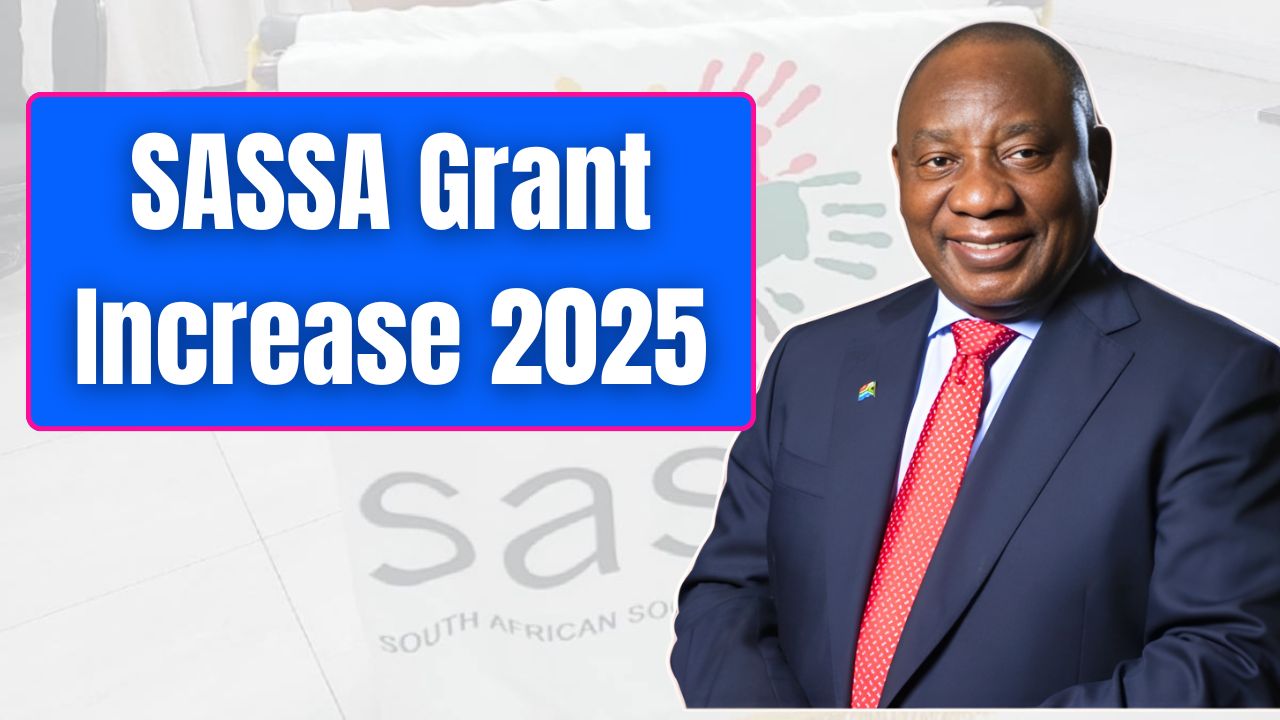South Africans who rely on social assistance through SASSA (South African Social Security Agency) received some uplifting news this April. The Department of Social Development has implemented a significant increase in grant amounts across several categories, offering much-needed relief to millions amid a tough economic climate.
From pensioners and people living with disabilities to parents receiving child support grants, the April 2025 adjustments promise to improve everyday lives and economic stability for vulnerable citizens.
What Sparked the Increase in SASSA Grants?
The increase comes in response to growing calls from civil society organizations and advocacy groups who have long argued that SASSA grants were no longer in line with the rising cost of living.
Inflation, high unemployment, and a surge in food and fuel prices have eroded the buying power of grant recipients. In his February budget speech, Finance Minister Enoch Godongwana acknowledged these concerns and committed to a grant boost starting April 2025.
The government’s move is seen as part of its broader effort to tackle poverty and inequality, especially in the lead-up to the national elections later this year.
New Grant Amounts as of April 2025
The increases are not uniform across all grant types but reflect targeted support for those deemed most in need. The Old Age Grant has seen a jump from R2,090 to R2,200 for individuals over 60 and from R2,110 to R2,220 for those over 75. The Disability Grant has been adjusted to R2,200, matching the senior citizen benefit. Child Support Grants have been increased from R510 to R550 per child, a significant change for struggling households.
The Foster Child Grant and Care Dependency Grant have also been raised to R1,210 and R2,200 respectively. While the amounts may not seem dramatic, for families living below the poverty line, every extra rand can make a meaningful difference in affording groceries, school supplies, and transportation.
Who Benefits From the Increase?
These changes affect over 18 million South Africans who rely on monthly grants for survival. Pensioners, disabled individuals, caregivers, and children in foster care will all experience a direct uplift. Indirectly, communities may also benefit from increased spending in local shops and services, which could help stimulate township economies.
For single parents and elderly-headed households, in particular, the additional support could ease financial pressure and reduce the need for debt or informal borrowing to make ends meet.
Broader Economic Implications
Aside from alleviating individual hardship, the grant increases could have a ripple effect on the wider economy. Many experts believe that expanding social grants is one of the fastest ways to inject money into local economies, particularly rural and peri-urban areas. These are places where retail activity depends heavily on social grant spending.
Additionally, with the increased grants arriving ahead of winter, the timing may help households cover heating and electricity needs during the colder months.
Criticism and Concerns
Despite the generally positive reception, not everyone is convinced that the increases go far enough. Some economists worry about the long-term sustainability of rising social grant expenditures, especially given the country’s fiscal constraints and sluggish GDP growth. Critics argue that without job creation and structural economic reform, grant increases are a temporary fix rather than a permanent solution to poverty.
Others point out that the grant amounts still fall short of the national food poverty line, meaning that recipients are still vulnerable to hunger and poor living conditions.
What Recipients Should Do Next
SASSA beneficiaries do not need to reapply to access the increased amounts. The new figures have been automatically implemented for April payouts. However, it’s crucial for recipients to regularly update their contact details and banking information with SASSA to ensure smooth payment processing.
Beneficiaries are also advised to remain alert to scams, as any changes in grant payments often attract fraudulent activity. SASSA has reiterated that it will never ask for PIN codes or personal banking login details.
Looking Ahead
While the April 2025 increase brings hope, it also highlights the ongoing need for a balanced approach to social welfare one that combines immediate financial support with long-term developmental solutions. The government has hinted at potential pilot programs for a Basic Income Grant (BIG), which may evolve based on the success of these latest interventions.
As the country moves deeper into 2025, the conversation around social protection will likely intensify. Citizens, policymakers, and civil society must continue to engage constructively to ensure that no South African is left behind.




